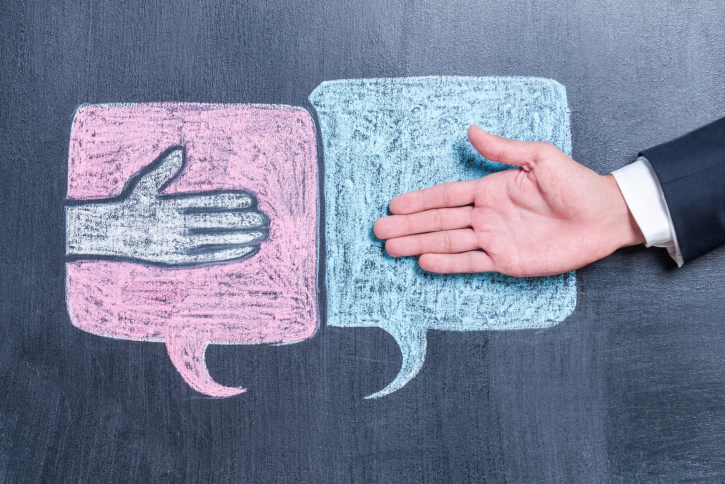By Rachel Dhaliwal
Contributor, Career Services
Congratulations! You’ve landed your first phone interview!
PHONE interview? Yes. The phone interview is much more common these days, as it provides a company’s HR department with a further opportunity to winnow down applicants before they invest a large block of time conducting face-to-face interviews.
The phone interview differs from the more traditional in-person interview in three ways. First, it is usually short in duration and secondly, it often involves a first-line HR representative. A third difference, one which can have a substantial effect on you as the interviewee, is the fact that you can’t see the interviewer, and he or she can’t see you. If the idea of losing the feedback gained through interpreting body language makes you nervous, you can combat this reaction with a little bit of prep work.
Prepare your research. If an interviewer feels you don’t know anything about the company, you can come off as “just looking for a job, any job.” Even if this is the case, change your mental framework by thinking, “I’m looking for THIS job, with THIS company,” and conduct your research with that goal in mind.
Go deeper than the position description. Check out the company’s mission statement, community involvement and any mention of it in the news, for starters.
Try to find out some of the key employees’ names and check them out on LinkedIn. Do you share the same hobby? Alma mater? Hometown? Mention it. Doing solid research not only conveys that you are serious about this role; it also provides you with great information to ask questions about later.
Prepare questions for the interviewer. Questions show interest in the position and the company, as well as demonstrate your approach to research. Think “open-ended questions.” If it can be answered with a simple “yes/no,” it is not an open-ended question.
Also, don’t ask questions which could be answered using a simple Google search. The interview is a place for you to get answers from someone on the inside. Don’t waste everyone’s time (even yours!) with a question that the Internet could answer.
Prepare answers to common interview questions. Most interview questions center around a few common themes — what makes you the best candidate for the job, how well will you get along with the rest of us, how do you handle difficult experiences, and what can you do for us? If you come up with solid, demonstrable answers to each of these themes, you will find that they apply to most of the questions you are likely to be asked.
Think back to previous work experiences. Come up with a story for each of them that clearly shows why you brought it up in the first place and how what you learned can be applied at the new place.
Prepare your environment. Choose a room where you have complete control. Turn off anything that could make noise, lock up pets in a non-connecting room, pour yourself a large glass of water, and have your notes laid out where you will not need to rustle them to find your answers. Once the call has started, make sure that the vibration feature of your phone is disabled, so neither you nor the interviewer will be distracted.
Prepare yourself. Put on an interview outfit. No, they can’t see you, but it will have an impact on you, and help get you in the “professional” state of mind. Then, do a “power pose” for a few minutes. Stand up straight, shoulders back, chin up and fists on your hips to get you in the “competent and capable” mindset.
Finally, smile. It’s a well-known fact that a smile can be heard in a person’s voice, even over the phone. Your smile conveys that you are confident, self-assured, relaxed, and open, all qualities to which people respond positively.
From the moment you are informed of your upcoming phone interview, you can begin taking steps to combat pre-interview jitters and successfully earn your place in the next round of the hiring process.
[Related: Perfecting Your Phone Interview Answers]

Comments are closed.